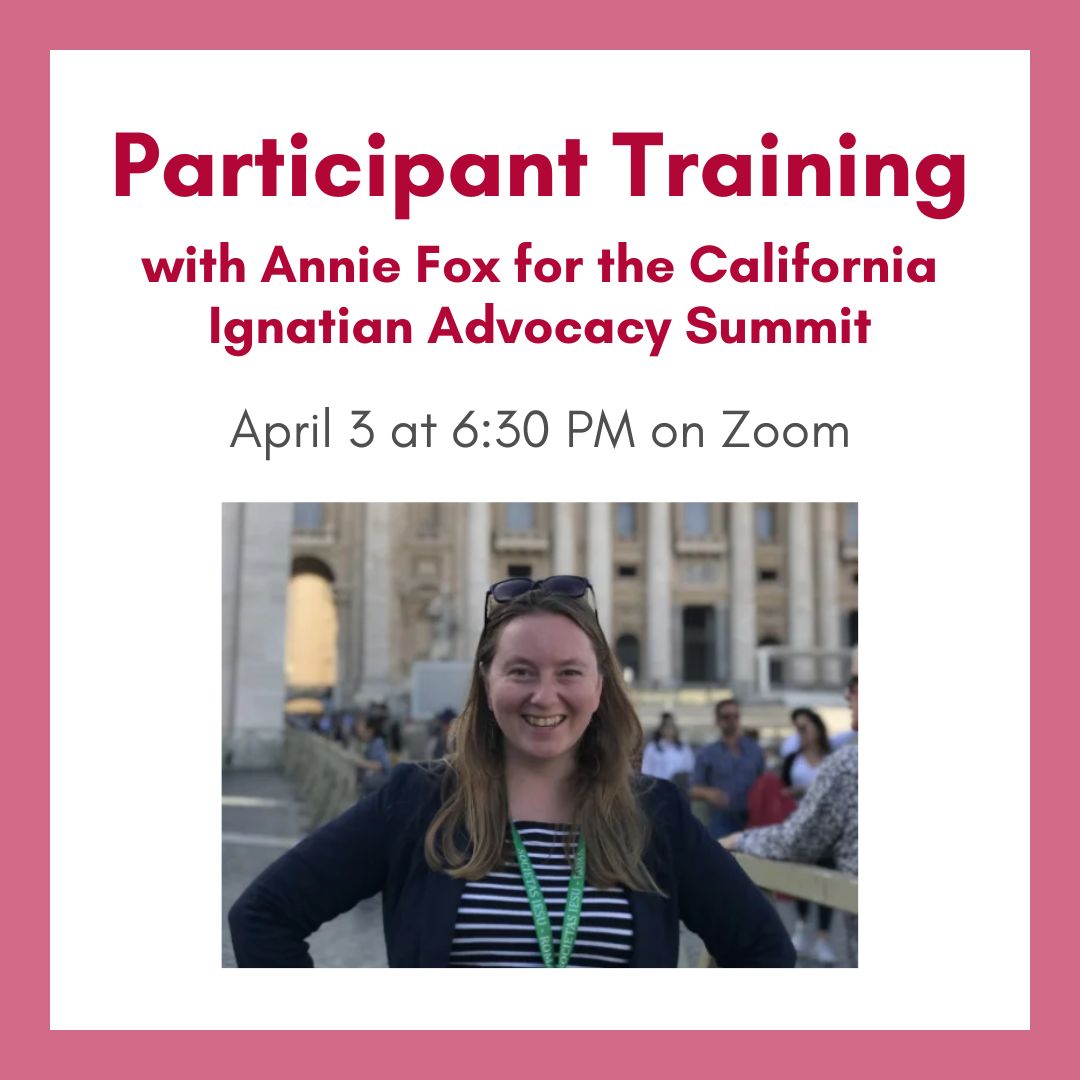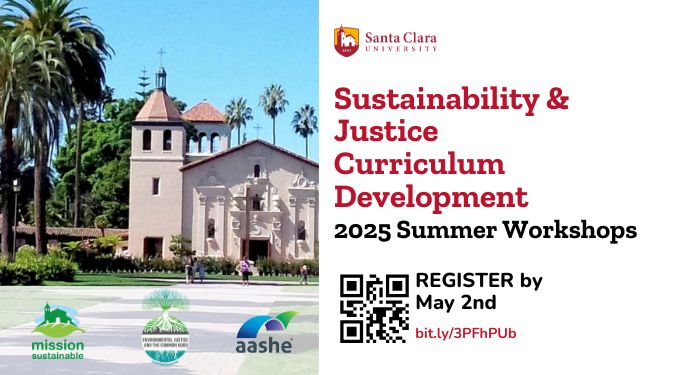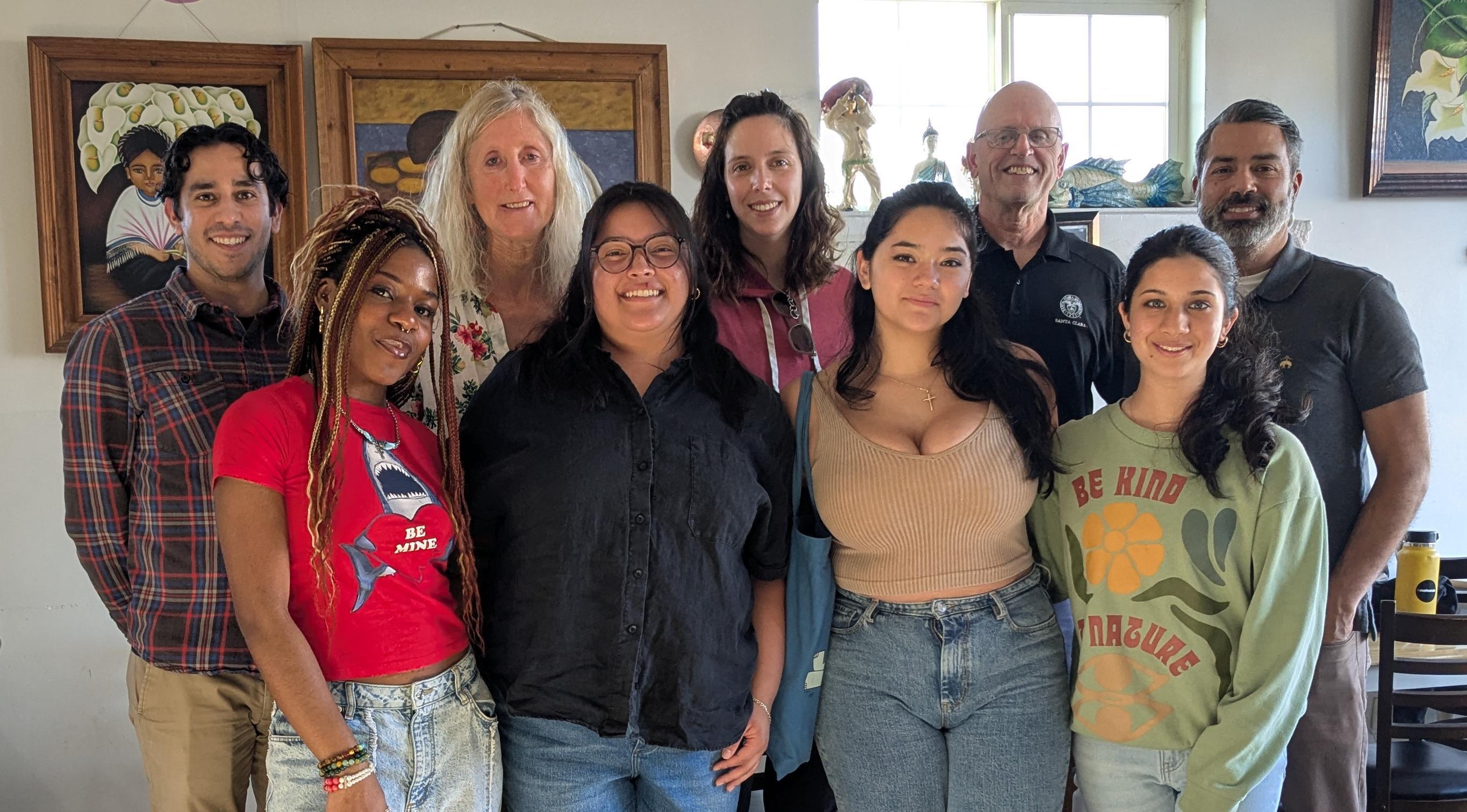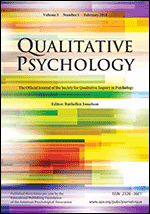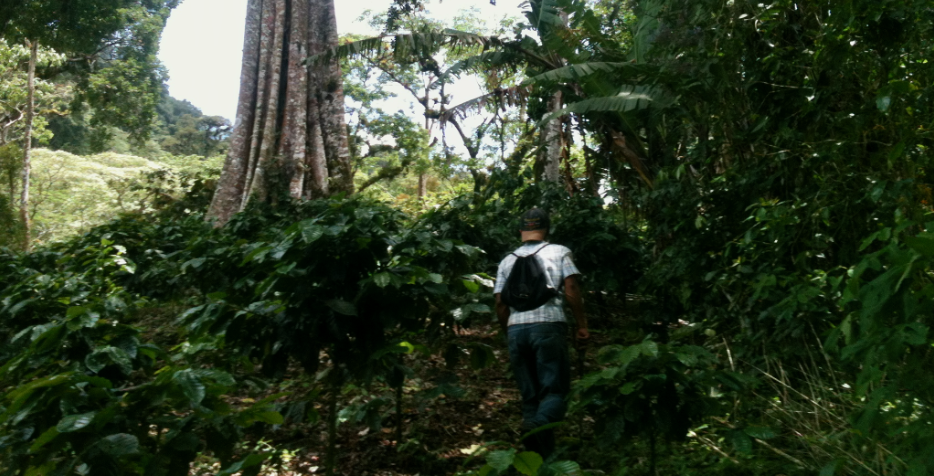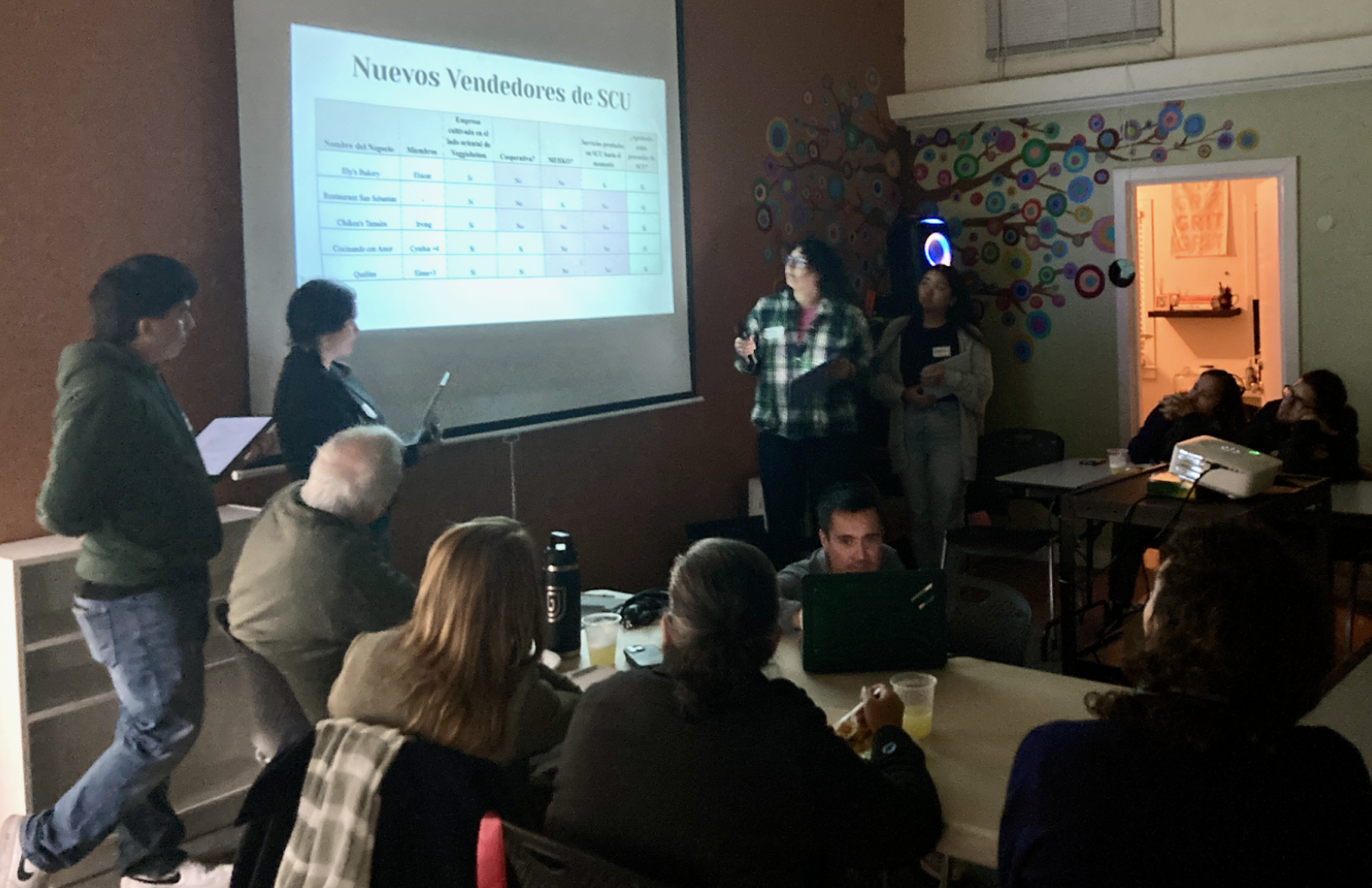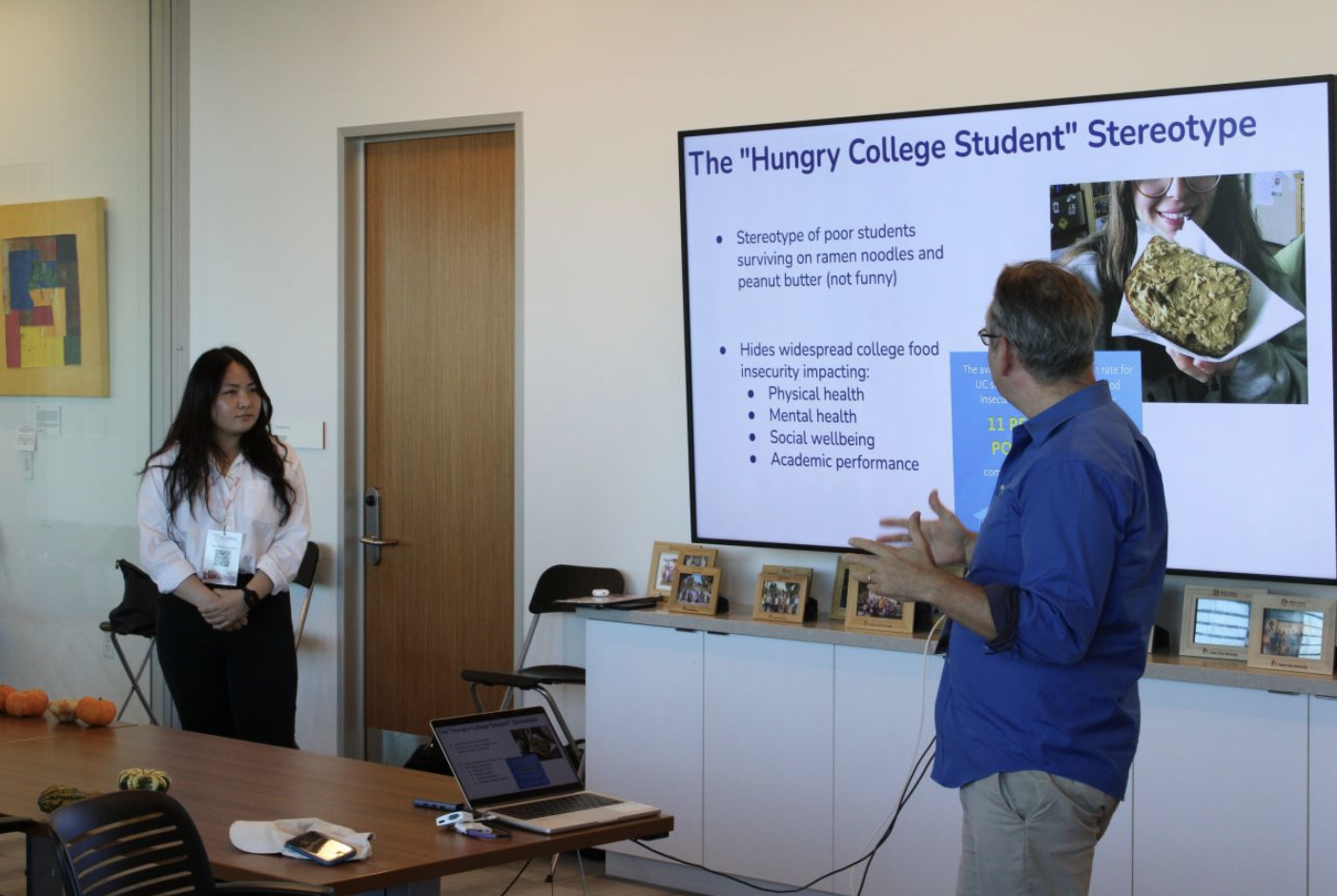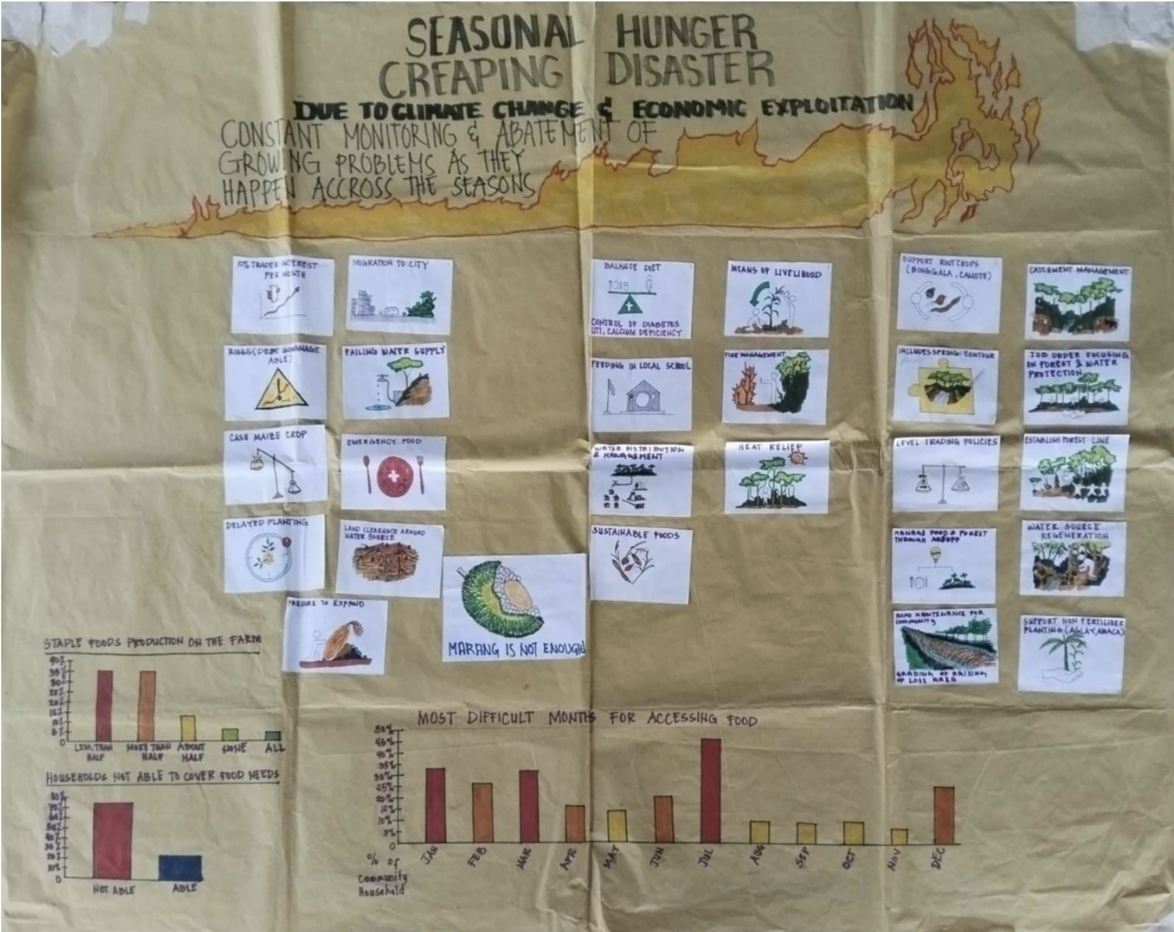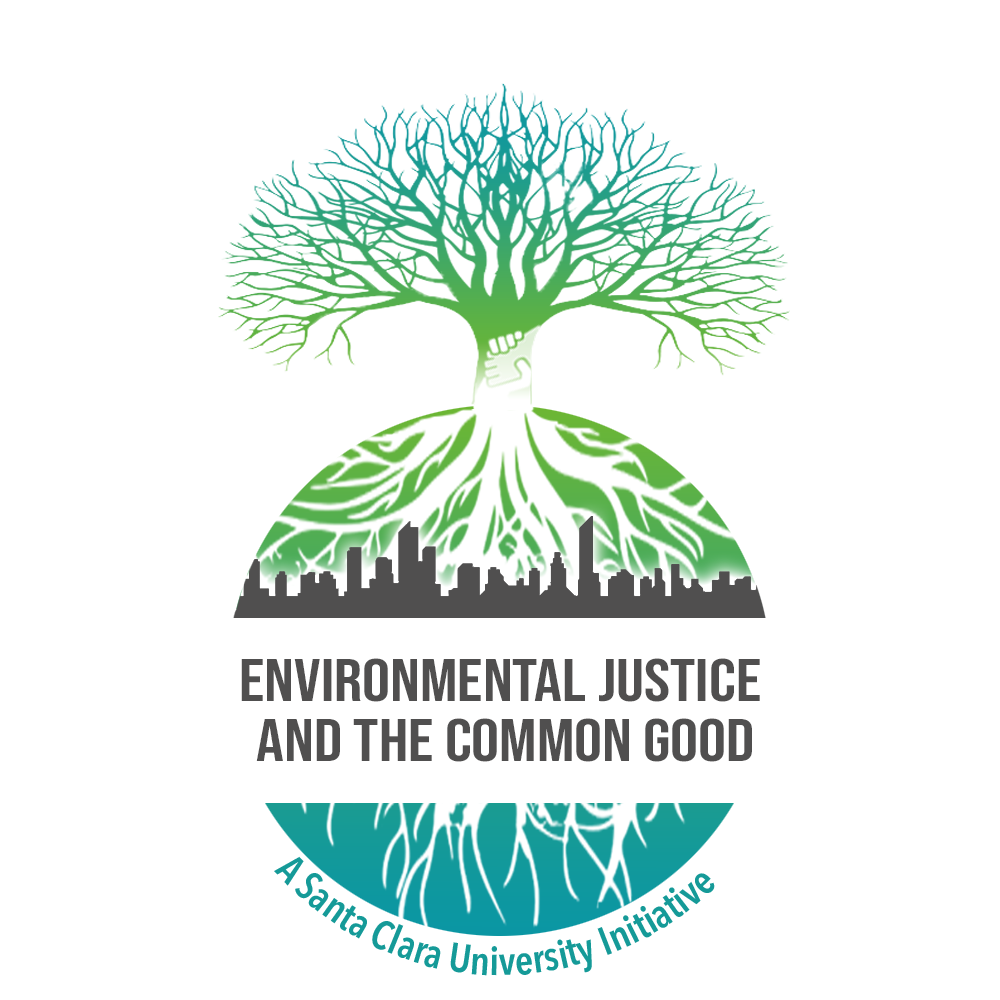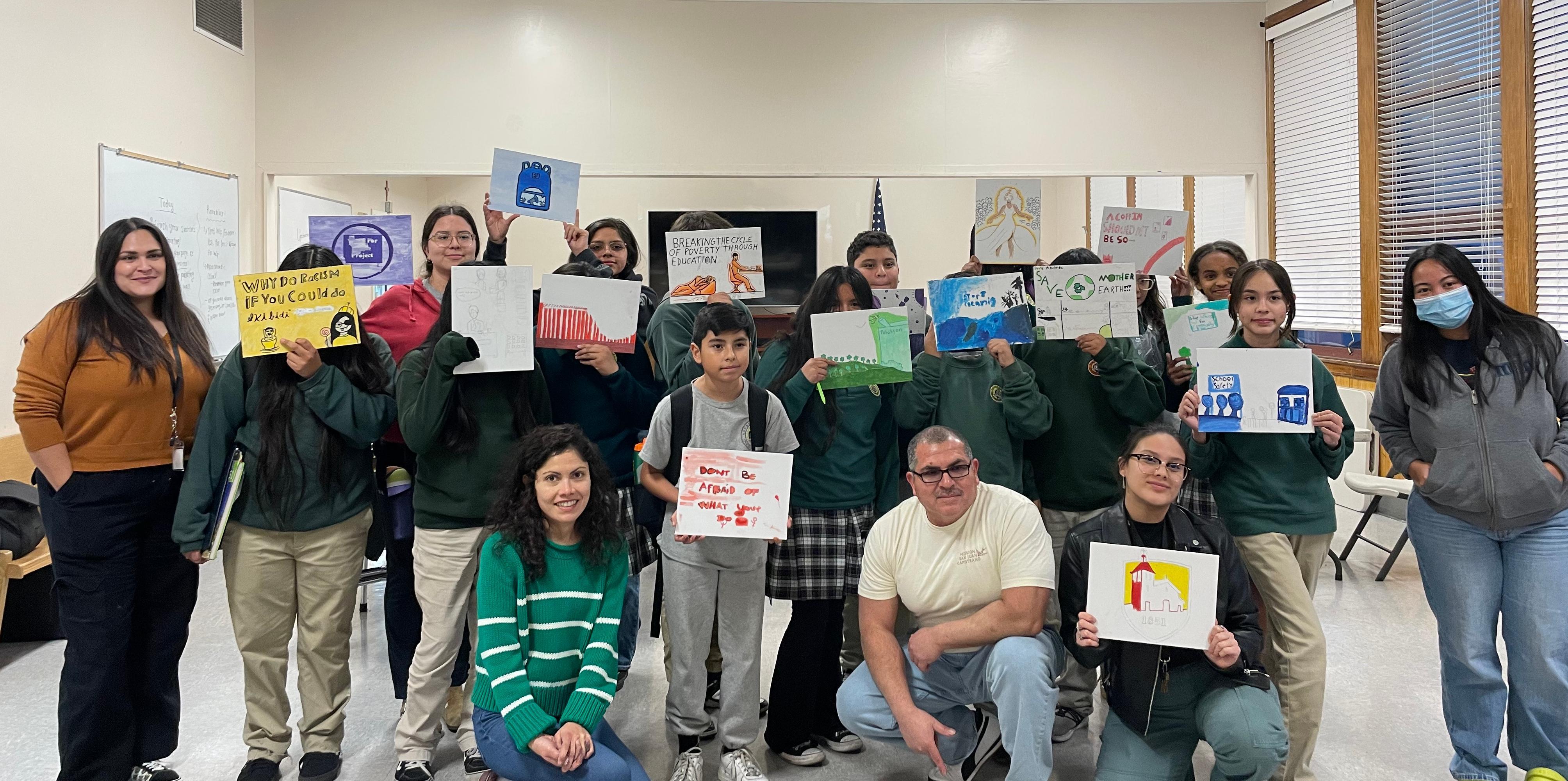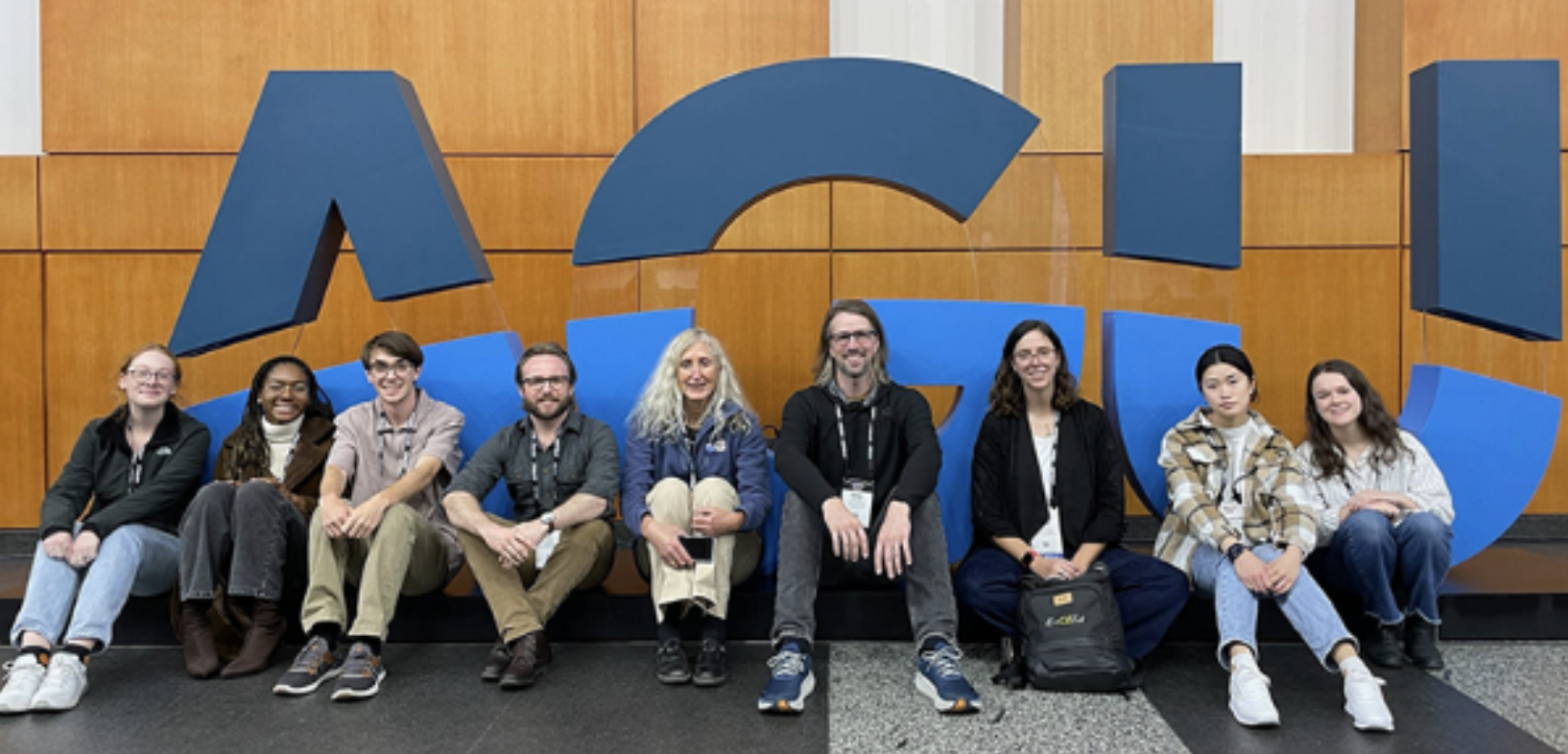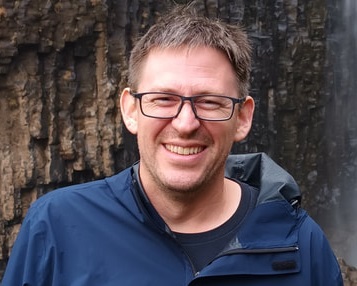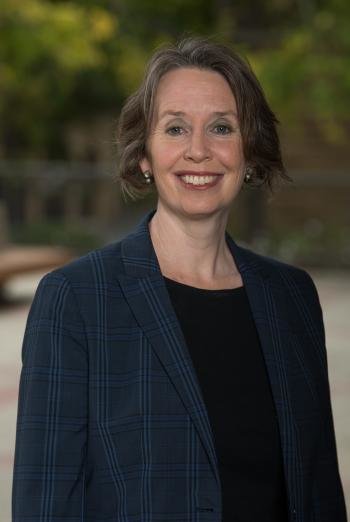| Trouble viewing this email? Read it online. |
| Winter 2025 |
Fostering community-driven research and learning for social and environmental justiceNewsReflecting on the Fires in Los Angeles and the Environmental Impacts of Artificial Intelligence
The Initiative’s Iris Stewart-Frey commented on the role climate change might play in the deadly Los Angeles fires, including to TV station ABC7 and the BBC, which was picked up by other news outlets such as the National World and the Global Herald. In the BBC article, Stewart-Frey discussed how the LA wildfires are a wake-up call to major sports event organizers about the need to adapt to climate change as the city prepares to host matches during the 2025 Club World Cup, 2026 FIFA World Cup, and 2028 Olympic and Paralympic Games. Stewart-Frey pointed out that the recent wildfires are a reminder that we need to weigh the benefits and costs of major sporting events such as these, including their contributions to climate change. "Coming together to be in friendly competition, in goodwill, and understanding each other, is a real benefit from these kinds of events and in many ways we need more of that," she said. "We just have to figure out how we do that without destroying the environment at the same time." Stewart-Frey also provided insights on the environmental impacts of the rise in data centers fueled by AI’s growing power demands for the article, "As California AI Data Centers Grow, So Does Dirty Energy," in The Slick. Image credit: toast21, Wikimedia Commons Advocacy and Organizing Opportunities: Jesuits West CORE California Ignatian Advocacy Summit and PACT San José
Call for Applications: Summer Curriculum Development Workshops on Sustainability and Justice
Faculty and academic staff from all institutions are invited to apply for our summer online Sustainability & Justice Curriculum Development Workshops. The workshops are for anyone who is revising a module or course, or who trains colleagues on their campuses to integrate sustainability and justice across the curriculum. These workshops are offered jointly with SCU’s Center for Sustainability, which is a national training center for sustainability across the curriculum affiliated with the Association for the Advancement of Sustainability in Higher Education (AASHE). Apply by April 1 for priority consideration. Applications close on May 2. For more information and to apply, visit our website. Our New YouTube Channel
Jesica Fernández wins Early Career Scholarship Award
In Our ResearchSpecial Issue of "Social Sciences" on Community-Engaged Research for Environmental Justice
The Initiative’s Chad Raphael collaborated with Martha Matsuoka (Occidental College) and Ana Baptista (The New School) to co-edit a special issue of the journal Social Sciences about Community-Engaged Research for Environmental Justice. Highlights include articles on community murals by the Initiative’s Jesica Fernández (SCU Ethnic Studies) and Laura Nichols (SCU Sociology), and on science education by Won Jung Kim (SCU Education and Counseling Psychology). Additional articles address urban water runoff, photovoice and community science, and conservation science. Each article involves research conducted in partnership with community organizations that are working to advance environmental justice. Recovery from a Historic Levee Failure: Focus Groups in Pajaro, CA
In March 2023, a historic storm caused a levee failure that flooded Pajaro, a predominantly immigrant farming community in California's Monterey County. To date, questions about why the levee was not fortified against storms of this size and how residents were supported in the aftermath persist. The Initiative’s Rocio Lilen Seguro and Iris Stewart-Frey, together with colleagues David DeCosse from the Markkula Center for Applied Ethics are conducting community-based research that seeks to change how flooding risks are assessed for environmental justice communities and suggest better policies for recovery. In February, the team of researchers, together with colleague Allan Baez Morales (Frugal Innovation Hub), collaborators from the California Rural Legal Assistance, and undergraduate research assistants Victory Chika-Okafor (ESS), Sophia Toribio (ESS), Mahi Shah (CESE) and Giselle Aviles (CESE) conducted three focus groups with community residents to learn about the lasting impacts on their community and the barriers to receiving aid, flood recovery, and disaster preparation under climate change. Engineering Research Showcase Posters about the Levee Project
In February, Rocio L. Segura and Iris Stewart Frey, along with students from the Department of Civil, Environmental, and Sustainable Engineering Dana Johnson (’25), Anna Krebs (’25), and Karina Martin (’25) presented two posters at the 7th Annual School of Engineering Research Showcase. Their research explores the intersection of flood risk, social vulnerability, and community resilience in marginalized communities living behind levees. The two posters were:
Their work highlights the often-overlooked social dimensions of levee risk assessments and disaster resilience, emphasizing how structural vulnerabilities intersect with community identity and lived experiences. Through a combination of qualitative research, policy analysis, and community engagement, the team aims to advance more equitable approaches to flood risk management. New Grant to Support Food Justice Conference and Curriculum
Chris Bacon received a $24,998 award from Western Sustainable Agriculture Research and Education to support his project “Co-producing a Place-Based Food Justice Conference and Curriculum in the South Bay.” This project will be coordinated with the Initiative, SCU faculty and student researchers, the South Bay Food Justice Collaborative, Veggielution community farm, University of California Extension, and other partners. They will convene a mini-conference as the culmination of an urban agroecology and food systems change short course. The team will subsequently develop a hybrid place-based curriculum with learning outcomes focusing on an equity competency model for sustainable food systems and fostering cross-institutional collaboration in the South Bay Area. New Article on Critical Participatory Action Research
Presentation at the Forum for Integral Ecology at Ibero Mexico
Iris Stewart-Frey and Allan Baez Morales gave an invited presentation on “Building Resilient Communities through Partnerships between the Global North and the Global South and the Principles of Integral Ecology” at the Ibero Mexico Forum for Integral Ecology: Sustainability and the Common Good in Latin America. The presentation highlighted the application of Laudato Si' principles in practice and underscored universities’ roles in addressing global challenges like climate change, especially through transdisciplinary work. By combining the expertise of environmental scientists, engineers, designers, social scientists, and local community members, the NicaAgua app developed by the Water and Climate Justice team serves as a model for how technology can be harnessed to promote environmental justice and support the common good. Agroecology for Sustainability and Justice: A Commentary
Christopher Bacon published a commentary on agroecological transformations for environmental sustainability for the Social Justice and Ecology Secretariat (SJES - Rome). In this commentary, Bacon draws on his years of experience as a Peace Corps Volunteer, a student of sustainable food systems at University of California, Santa Cruz, and his recent research to show the value of a community-based agroecological approach for responding to Pope Francis’s call in Laudato Si' to fix our broken global food system. As Bacon explains, “Agroecology is a principles-based approach that draws on Indigenous and local knowledge and ecology and agricultural sciences to foster diversified farming and inclusive food systems.” He offers many examples of how Jesuits and others are implementing this approach to create a more just and sustainable food system around the world. Keynote Address at Global Congress on Climate Change
Iris Stewart-Frey gave a keynote presentation on “Community-Academic Partnerships to Support Climate Adaptation to Recent and Future Hydroclimatic Shifts” at the 4th Global Congress on Climate Change (GCCC-2024) in Lisbon in September. In her address, she highlighted the possibilities of connecting the work of the climate science community to efforts at strengthening climate resilience on the ground, especially in the Global South. She also called on the climate science community to provide the resources for science-based decision-making on local scales, using the collaboration around the NicaAgua climate app at SCU as a case study. Building Diverse and Sustainable Food Systems with East San José Entrepreneurs
Christopher Bacon and Maria Eugenia Flores Gomez, along with student researchers from the Initiative’s Food and Climate Justice program and the Department of Environmental Studies & Sciences capstone course, gave presentations and engaged in dialogue with residents and regional experts during two stakeholder meetings. Student researchers Josue Josue Hernandez-Perez (‘25), Sofia Perron (‘25), Gabrielle Canola-Leach (‘25), and Maylin Pollack (‘25) presented their research in Spanish. As part of the Collaborative Innovation for Food Justice project, this team is working with the Veggielution community farm to design a food systems data dashboard and conduct a values-based purchasing feasibility study for a new worker-owned food catering cooperative. Santa Clara University has now connected with five new local food vendors offering culturally rooted meals from this community. Addressing Basic Needs Insecurity Among First-Generation College Students at SCU
The Initiative’s Christopher Bacon and student researcher Wanyu (Mary) Xiang (Public Health ‘25) recently presented key findings from the Basic Needs Survey Research Team at SCU’s First-Generation, Limited-Income (FLI) Forward Conference. The presentation highlighted critical challenges, including the fact that 28% of SCU students experience food insecurity, and 1 in 4 students face housing insecurity. First-generation college students are disproportionately affected, with 44% experiencing food insecurity, double the rate of their non-first-generation peers. This multi-year research initiative has directly contributed to creating SCU’s Basic Needs Program, which provides essential resources for students. As Eva Blanco-Macias (Vice President for Enrollment Management) emphasized, as SCU expands access for FLI students, we must deepen our understanding of their needs. Through ongoing survey analysis, food and housing insecurity assessments, and action research, the research team remains committed to ensuring that all students have the support they need to thrive. In Our NetworkingCollaboration across Jesuit Networks for Agroecology, Food Security, and Youth Participation
For five years, the Initiative’s Food and Climate Justice Program has partnered with Dr. Pedro Walpole, SJ of Apu Palamguwan Cultural Education Center (APC) in the Philippines to advance Laudato Si inspired work across global networks. In 2024, after Chris Bacon shared agroecology and food security methods from long-term community-based participatory action research work in Nicaragua, Pedro teamed up with Indigenous youth and researchers from the Institute for the Environment and Social Change to adapt methods from the Nicaragua project to their local context. As part of the dissemination of their results, Pedro’s team convened a workshop for 70 neighboring youth and presented findings from their survey and focus groups, opening a conversation about how to address seasonal hunger and improve access to safe drinking water in the context of climate change and other hazards. This year, the Climate and Food Justice program and APC launched a project to expand community-engaged agroecology to address climate change, food insecurity, and vulnerability, and to prepare an educational case study of youth experiences and the use of Indigenous environmental knowledge to foster resilience responses. These results will be shared in the case study, a short comparative article, and potentially as part of a delegation to the United Nation’s COP 30 climate meetings.
Proposing Policies that Support Access to Safe and Clean Water to California’s Water Board
The Initiative’s Iris Stewart-Frey, together with representatives from environmental justice organizations Clean Water Action, the Leadership Counsel for Justice and Accountability, and the Central California Environmental Justice Network, were part of an invited environmental justice panel at a public workshop organized by and for California’s State Water Resources Control Board in February. The workshop addressed possible processes and solutions to widespread water contamination affecting more than 100,000 people dependent on domestic wells and small water systems in the Central Valley. The panel provided summaries of community experiences and concerns, and policy recommendations for defining metrics, addressing data gaps, practicing transparency, and conducting outreach. SCU Networking Meetings on Youth, Environmental Justice, and Health
Recent ProgrammingVisualizing Environmental Justice: A Youth-Centered Mural Installation
The Youth for Justice Project (YJP), an afterschool program at Sacred Heart Nativity School in San José, partnered with Local Color SJ, a non-profit organization fostering community development opportunities for artists and creatives, to lead a series of art workshops. Jesica Fernández, who oversees YJP and is a member of the Initiative, along with student researchers Ashley Orozco-Plata, Linda Soto, and Naomi Hernandez, facilitated this collaboration. The three art-making workshops supported youth to create a mural-like art installation at their school that featured themes of environmental justice at the intersections of social change. With the guidance of local artist Tomas “Wisper” Talamantes and art-educators Jessica Carmen and Wednesday DeGuzman, youth created individual canvases featuring social and environmental justice issues they care about – from education to economic equity to diversity and racial justice. Each canvas helped form a unified, youth-centered mural that was inspired by the 100 Block Mural SJ, a mosaic-tiled mural featuring the artwork of 100 artists in San José. The canvases that were produced by YJP youth were brought together to create a mural that was installed in the hallway of Sacred Heart Nativity School. The mural installation captured youth voices – reflecting their hopes and dreams – along with their calls for social change in their living and learning environments. In Our TeachingStudents Present at 2024 American Geophysical Union Conference
Research Grant SpotlightHighlights of research supported by our research grant program. The Politics of Coastal Reclamation in Indonesia
New Research Grants Awarded
The Initiative announced our newest research grants in collaboration with SCU’s Miller Center for Social Entrepreneurship. The Initiative and Miller Center will fund two projects to advance SCU’s vision to create a more humane, just, and sustainable world, while promoting the Miller Center’s mission to eradicate global poverty and protect the planet, and EJCGI’s mission to foster community-driven research for social and environmental justice. Lee Panich (Anthropology) and Amy Lueck (English) received funding for “Traditional Ecological Knowledge and Community-Engaged Learning.” This project continues community-engaged research into the traditional ecological knowledge of Ohlone ancestors through the analysis of their interviews with early anthropologists. SCU students will work with members of the Muwekma Ohlone Tribe to identify important knowledge in archived field notes and prepare transcriptions for use by the contemporary tribal community. These transcriptions will play a central role in the annual Ohlone Youth Cultural Campout held on the SCU campus each summer. Chan Thai (Communication) received funding for “Impact Assessment Training on Knowledge and Practices of Community Development Facilitators in the Philippines.” This project is a collaboration with the Alternative Indigenous Development Foundation, Inc. (AIDFI), which installs water pumps to provide Indigenous upland communities in the Philippines with running water. The project seeks to develop, implement, and assess the impact of an Impact Assessment Training on the knowledge and practices of AIDFI staff. The training may be adapted for other non-government organizations and social enterprises. Partner SpotlightSibyl Diver - Stanford University
|
| Home | Privacy Policy | Unsubscribe |
Environmental Justice and the Common Good Initiative Santa Clara University 500 El Camino Real Santa Clara, CA 95053 environmentaljustice@scu.edu |


